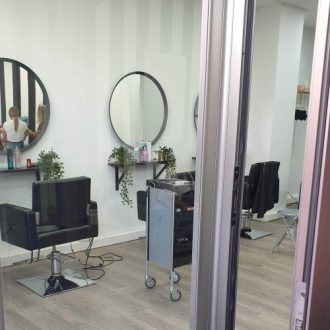
Make the Most of Studying Virtually
Dear Kyle,
Like many, you may find that you need to take your studying online under the current circumstances. While this may not be a big shift for those people who have been studying virtually in the past, it might be completely new to you. Don’t worry! We’ve studied online in a variety of capacities over the years and have therefore compiled 9 of our top tips for doing so successfully.
 1.) Invest in a class or a program
1.) Invest in a class or a program
One of the reasons that you may find it difficult to study virtually is that you may feel like you are farther away or not connected to something that is ‘real.’ Therefore, at least at first, we suggest signing up for a proper program or working with a teacher that has experience in long-distance teaching. While it is not necessary to pay money (for example, Coursera has lots of free classes), until you get into the hang of it, you might want to feel like you are ‘missing’ something if you don’t feel committed to the studying. One way to feel more committed? Pay for it! If you make a monetary investment, you might value the experience more.
2.) Block out time in your schedule to study
It’s obvious that you will need to mark your class times in your agenda in order to attend virtual classes. However, we would recommend you also create space in your schedule before and after class to review, amplify notes, and dive into assignments or further immersion while you’re in the study mode. For most people, getting started is the hardest part but once you’re “in the flow” it’s not that hard to stay engaged.
Try to take advantage of that flow by considering the hour after class (or as much time as you can allow) to also be considered ‘class time.’ Avoid scheduling other activities or work immediately after. For example, if you have a class from 4-5pm, it would be excellent to block out 3:30-6pm in your schedule. If applicable, you might even get all your homework done right then and there while the material is fresh in your head! Still, we recommend you set aside study time daily.
3.) Create a study environment with as few distractions as possible
We discuss the importance of a quiet, clean space for teaching online and working from home in other articles and the same goes when studying. Be sure to choose some place to sit during class where there won’t be too much noise. If you’ll be on camera, also avoid too much movement in the background by sitting with your back to a blank wall.
 Just as you (hopefully) would with an in-person class, be sure to arrive at your computer for class on time or a few minutes, having already prepared yourself to be focused for the duration of the class—avoid the need to step away for a bathroom break, snack, or drink refill. Set yourself up for success by having any such things you’ll need within reaching distance.
Just as you (hopefully) would with an in-person class, be sure to arrive at your computer for class on time or a few minutes, having already prepared yourself to be focused for the duration of the class—avoid the need to step away for a bathroom break, snack, or drink refill. Set yourself up for success by having any such things you’ll need within reaching distance.
4.) Adapt your study plan to your learning style
Once you have a routine down of what it is like to study virtually, you will be able to better establish what you need and what works for you. This should also match with how you like to learn. For example, if you learn by reading, consider adding more articles to your study plan. If you are a visual-audio learner, try to find a YouTube channel that offers videos in what you want to learn. Oftentimes, you will be able to find lots of free resources for what you are looking for. However, if you don’t stick to a structure, you might only check them once. We recommend setting aside a consistent time each day to engage with whatever resources work well for you. Even if this is only 15 minutes each day, it helps keep what you’re studying at the top of mind.
5.) Take good notes and organize what you learn
 Even if you are not going to class everyday or turning assignments into your teachers/facilitators, make sure you take care to organize what you learn. For some people this might mean taking meticulous notes and highlighting what they find to be important. For other people, notes might be scarce or non existent. However, research shows that the first time you learn something, it is unlikely to stick 100% (in fact, it is estimated that we tend to forget 70% of what we learn by the next day).
Even if you are not going to class everyday or turning assignments into your teachers/facilitators, make sure you take care to organize what you learn. For some people this might mean taking meticulous notes and highlighting what they find to be important. For other people, notes might be scarce or non existent. However, research shows that the first time you learn something, it is unlikely to stick 100% (in fact, it is estimated that we tend to forget 70% of what we learn by the next day).
That is why, if you want to remember what you learn, you will most likely have to review the material you have collected during the learning process. We recommend organizing everything you have—whether it is just a couple of notes or entire notebooks—in one place. Make it easy for yourself to understand what you have in your notes and make time to review what you have already covered for maximum learning.
6.) You get out what you put into it
Being committed and just doing the work, however, if not really enough to get the most out of the experience. If you really want to get the most out of your online studying experience, you have to put effort into it. If you are given reading materials or a lesson, be sure to actually work through them. If you have review work, be sure to actually do it. If there are other activities you could do to supplement your online studying, consider doing those as well. Dani takes Spanish classes and likes to set aside a half hour to an hour before her classes to get into ‘Spanish mode’ by watching videos or reading articles in Spanish and/or reviewing her notes from previous classes.
7.) Do your homework ahead of time
If you are taking an online class, make sure you are doing the work that is needed to be successful. Just because your class takes place online doesn’t mean it doesn’t demand the same level of commitment as a face-to-face class. In fact, you might find you need to do more studying and preparing outside of class. Consider having your homework done at least the day before in order to send it to the teacher to read and edit beforehand. This is because, as we mentioned in our article about teaching virtually, exercises are best completely outside of class in order to use your time together with a teacher as effectively as possible. Avoid putting your teacher in a position of having to read through your homework during the class. This is not the best use of either person’s time.
 8.) Test out your technology ahead of time
8.) Test out your technology ahead of time
If it’s the first time you’ll be using a new platform for your virtual lessons, be sure to test it out ahead of time. Even if you don’t have the exact link for your classroom far in advance, you can likely log into the platform (such as Webex or Zoom) and get a feel for the set-up. Most importantly, test that your headset (microphone and earphones) and camera work if you will be using them. If you will need to speak during the class, it is highly recommended that you have a headset like this one, with an external microphone close to your mouth. Such technology does a better job of picking up only on your voice, not background noises or echo.
9.) Continue to create motivation for yourself
It is not easy to study online, especially if you are working towards something without a specific teacher or class to (literally) get into your face and push you. We get it—studying from home might not be ideal for everyone, but finding ways to commit yourself can help. That is why, for a final but perhaps most important tip, we suggest writing out specific motivation points to help push you towards reaching your goal.
Even better is if you can involve someone else in your quest to commit because most of us are more likely to follow-through if we feel like we are letting someone else down. That is why we think getting an accountability partner to make sure you stay on the track you design for yourself is a great motivation hack. This might look like getting a commitment buddy and agreeing both of you will do 25 minutes of studying every day. However, it doesn’t necessarily have to be a one-to-one exchange. For example, Claudia has a study buddy who does a workout every time she studies.
 Have you ever tried to study online? We’ve done everything from the free courses (including using Duolingo for all our basic language learning needs) to a full year of college completed 100% online. While we find it can frustrating, we also find it very rewarding when we figure out the rhythm that works. Let us know what tips and trick you have been using in the comments!
Have you ever tried to study online? We’ve done everything from the free courses (including using Duolingo for all our basic language learning needs) to a full year of college completed 100% online. While we find it can frustrating, we also find it very rewarding when we figure out the rhythm that works. Let us know what tips and trick you have been using in the comments!
Sincerely,
Spain




